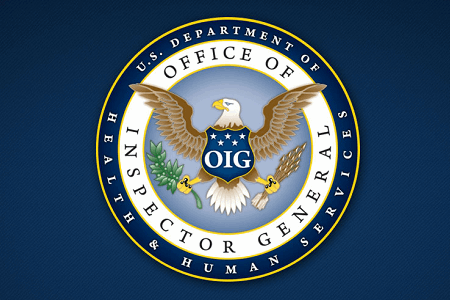Free Consultation
Fill out the form below or call us at (800) 345-4125.
Fill out the form below or call us at (800) 345-4125.

Health Law Alliance successfully overturned more than $30,000 in alleged inventory discrepancy findings asserted by Express Scripts’ Special Investigations Unit (SIU) against a Texas pharmacy.
View Article >>
Health Law Alliance is proud to announce a major victory in federal court, where it successfully secured the immediate lifting of a DEA suspension against a Florida community pharmacy, restoring its full authority to dispense controlled substances. This outcome ensures uninterrupted patient care and underscores the firm’s commitment to protecting healthcare providers from government overreach.
View Article >>
Federal enforcement actions are increasingly focused on remote patient monitoring (RPM) services. In this article, we break down two recent settlements involving RPM companies—Health Wealth Safe and Capital Health—and discuss key compliance takeaways for telehealth providers.
View Article >>
On July 11, 2025, the 9th Circuit upheld a laboratory operator’s convictions for violating EKRA by paying marketing agents to mislead providers into providing patient referrals for medically unnecessary blood tests. In this article, we analyze the 9th Circuit’s ruling and what it means for the future of EKRA enforcement.
View Article >>
Health Law Alliance successfully secured a full reversal of a Medi-Cal payment suspension for a California pharmacy, overturning speculative allegations made by the Department of Health Care Services. This case highlights the firm’s ability to protect healthcare providers against unjust enforcement actions and the critical value of experienced legal counsel in Medicaid and insurance disputes.
View Article >>.png)
Telemedicine business models may prompt regulatory scrutiny, including board investigations. In this case, HLA's experienced defense attorneys successfully resolved a three-year, multi-state investigation with no licensing or other implications.
View Article >>
After the Department of Justice threatened to indict our client for involvement in an alleged $6M healthcare fraud, we stood firm and our tenacious advocacy ultimately convinced the Strike Force to decline prosecution, representing a complete win for HLA's client.
View Article >>.png)
After the Department of Justice threatened to indict our client for involvement in an alleged $6M healthcare fraud, we stood firm and our tenacious advocacy ultimately convinced the Strike Force to decline prosecution, representing a complete win for HLA's client.
View Article >>
Health Law Alliance successfully reversed Optum’s termination of a Texas pharmacy from its network, protecting the pharmacy from severe financial and reputational damage. Our healthcare attorneys used strategic legal expertise and negotiations to overturn the decision, ensuring the pharmacy could continue serving patients. This victory highlights our dedication to strong advocacy and proven results.
View Article >>
This article explains arbitration clauses in Pharmacy Benefit Manager (PBM) network agreements, outlining when these clauses can be enforced and how they affect dispute resolution for pharmacies.
View Article >>
Health Law Alliance is pleased to announce that Optum recently agreed to reverse its network termination of a Texas pharmacy client despite significant claim discrepancies based on inventory shortages, patient denials, and other alleged violations of the terms and conditions of the Provider Manual and network enrollment agreements.
View Article >>
Health Law Alliance's lawsuit against Optum has resulted in the immediate release of hundreds of thousands of dollars in reimbursement that Optum unlawfully refused to release to our client prior to being sued.
View Article >>
Discover how the new Corporate Transparency Act (CTA), effective January 1, 2024, will change the way businesses disclose ownership information.
View Article >>
Health Law Alliance's Anthony Mahajan is pleased to announce the complete dismissal of a lawsuit brought on behalf of the federal government against a cancer care provider for the submission of false Medicare claims for oncology drugs.
View Article >>
Health Law Alliance announces the filing of an emergency lawsuit in federal court for the Northern District of Texas, Dallas Division, to stop Optum's termination of an independent pharmacy that dispensed medications on telemedicine prescriptions and force Optum to comply with federal and state "prompt payment" laws that prohibit withholding of reimbursement.
View Article >>
Health Law Alliance has successfully challenged Optum Rx's termination decisions for numerous pharmacies, ensuring they can continue to operate and serve their communities. These victories highlight the firm's expertise in healthcare law and its dedication to protecting pharmacy clients from unjust PBM actions.
View Article >>
The semaglutide industry is relatively new, and significant regulatory enforcement typically lags by at least two years. Accordingly, all participants involved in the semaglutide supply chain should implement well-designed compliance programs now to reduce the risk and severity of future regulatory action.
View Article >>
Intense semaglutide demand has now drawn the attention of regulators beyond the Food & Drug Administration (FDA) and state boards. Last month, a woman was charged by federal prosecutors with violations of criminal law related to misbranded and adulterated weight loss drugs. This prosecution marks the first of many to come.
View Article >>
In the final Part Three of a three-part series on corporate transactions, we describe important considerations around structuring the sale of a business as an "asset" sale.
View Article >>
In Part Two of a three-part series on corporate transactions, we describe important considerations around structuring the sale of a business as a "stock" sale, including advantages and disadvantages compared to an "asset" sale.
View Article >>
On the heels of federal criminal investigations into OTC card usage, payors are now auditing OTC processes and imposing severe sanctions, including network termination, for non-compliance. Pharmacies should be wary of increased enforcement in this area and take steps to proactively reduce audit risk.
View Article >>
PBMs are huge companies that often use their market power in an abusive and predatory manner. This case study and successful network appeal provides an example of why experienced PBM audit defense attorneys are necessary to hold PBMs legally accountable and protect your rights.
View Article >>
In Part One of a three-part series on corporate transactions, we describe preliminary considerations around deal structure. In subsequent articles, we dive deeper into the advantages and disadvantages of asset sales versus stock sales.
View Article >>
PBM audits must be handled correctly or severe consequences may result. In this case, HLA was able to persuade prosecutors not to file criminal charges against the pharmacy's owner, but a subsequent civil resolution still involved harsh penalties. It could have been far worse.
View Article >>
Following a PBM audit that uncovered a $6.5 million billing discrepancy, federal prosecutors opened an investigation. After HLA was retained, the U.S. Attorney's Office for the Eastern District of Pennsylvania agreed to a $2.5 million civil settlement in which the Owner denied all wrongdoing.
View Article >>
Health Law Alliance has successfully challenged OptumRx's termination decisions for numerous pharmacies, ensuring they can continue to operate and serve their communities. These victories highlight the firm's expertise in healthcare law and its dedication to protecting pharmacy clients from unjust PBM actions.
View Article >>
HLA's Nancy Coffey, a former government official and healthcare expert, has been appointed to serve a three-year term as an independent pharmacy monitor for the Commonwealth of Massachusetts.
View Article >>.png)
PBM audits may result in collateral consequences, including licensing and disciplinary proceedings. In this case, HLA's experienced defense attorneys successfully convinced the State Board to decline further investigation, effectively resolving the matter at an early stage.
View Article >>
PBMs are increasingly terminating pharmacies for minor infractions of the provider manuals or network enrollment forms. These terminations are contrary to the PBM's obligations under law and the parties' agreements, and may have collateral consequences if the underlying allegations involve wrongdoing. In this case, we profile the steps that led to a successful network reinstatement for an Illinois pharmacy.
View Article >>
Although DEA has long targeted wholesalers as the "choke-point" for stemming diversion, the Agency has now shifted its focus to downstream physician and pharmacy registrants. Providers who thought they understood DEA risk need to revisit their planning because the enforcement paradigm has changed dramatically.
View Article >>
In this article we profile the The Health Law Alliance, a specialized healthcare boutique with a team of experts in government investigations, PBM audits, payor disputes, licensing board matters, and regulatory advice. Industry peers note the extensive legal experience of the firm's founding partner and the diverse expertise of the team, positioning the firm to provide strategic and pragmatic solutions for clients facing challenges in the healthcare sector.
View Article >>
Anthony Mahajan delves into the intricacies of off-label prescribing and dispensing for medications such as Ozempic, Wegovy, and Rybelsus. Mahajan discusses legal nuances applicable to manufacturers, physicians, and pharmacists, offering practical guidance for healthcare providers to manage off-label exposure effectively.
View Article >>
Health Law Alliance, led by Anthony Mahajan, announces the acceptance of a self-disclosure by OIG on behalf of Shore Orthopaedic University Associates, limiting liability to $333,645.83 for Medicare claims involving an unapproved code for Fluid Flow. The success underscores Health Law Alliance's expertise in OIG self-disclosures and the intricate decision-making process surrounding voluntary disclosures.
View Article >>
Health Law Alliance, under Anthony Mahajan's guidance, reports the successful acceptance of a self-disclosure for Delmar Pharmacy by OIG following a PBM audit identifying Humira dispensing discrepancies. The pharmacy's collaborative decision to disclose limits liability to $218,129.26, emphasizing Health Law Alliance's expertise in PBM audit defense and OIG self-disclosures.
View Article >>
Health Law Alliance, under Anthony Mahajan's leadership, celebrates favorable outcomes in federal and state cases involving inventory shortfalls, showcasing their expertise in PBM audit defense. Successful dismissals of criminal charges and reduced civil settlements highlight Health Law Alliance's strategic approach in resolving cases stemming from PBM audits.
View Article >>
Health Law Alliance addresses the complexities of defending against inventory shortfalls in the context of PBM audits, emphasizing the common sources of discrepancies and potential legal implications. The article underscores the importance of a well-organized defense strategy to limit liability and navigate potential consequences for providers facing network suspension, administrative proceedings, civil lawsuits, or even criminal charges arising from inventory management errors.
View Article >>
Federal prosecutors are now pursuing felony charges under Section 1035 for false statements in pharmacy audits, extending the risk of criminal prosecution for healthcare providers. Recent cases highlight the importance of legal counsel, such as HLA's experienced attorneys, to safeguard against potential legal consequences.
View Article >>